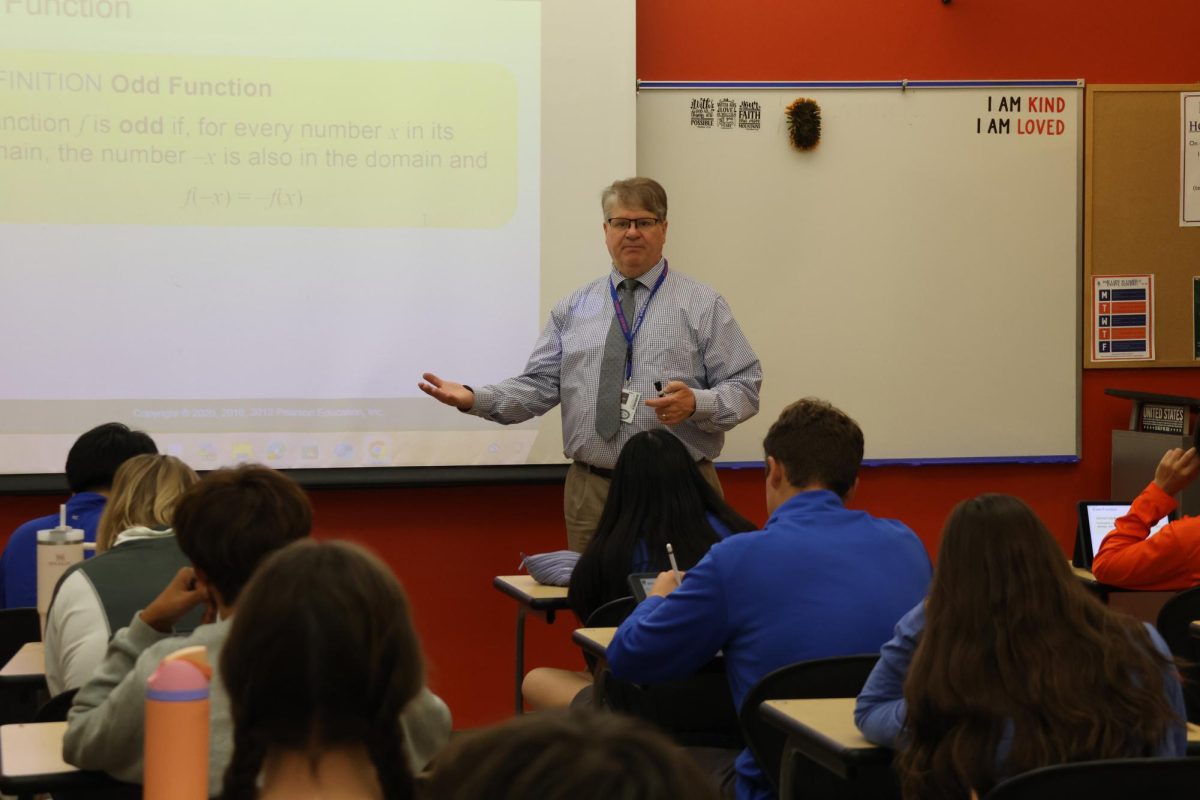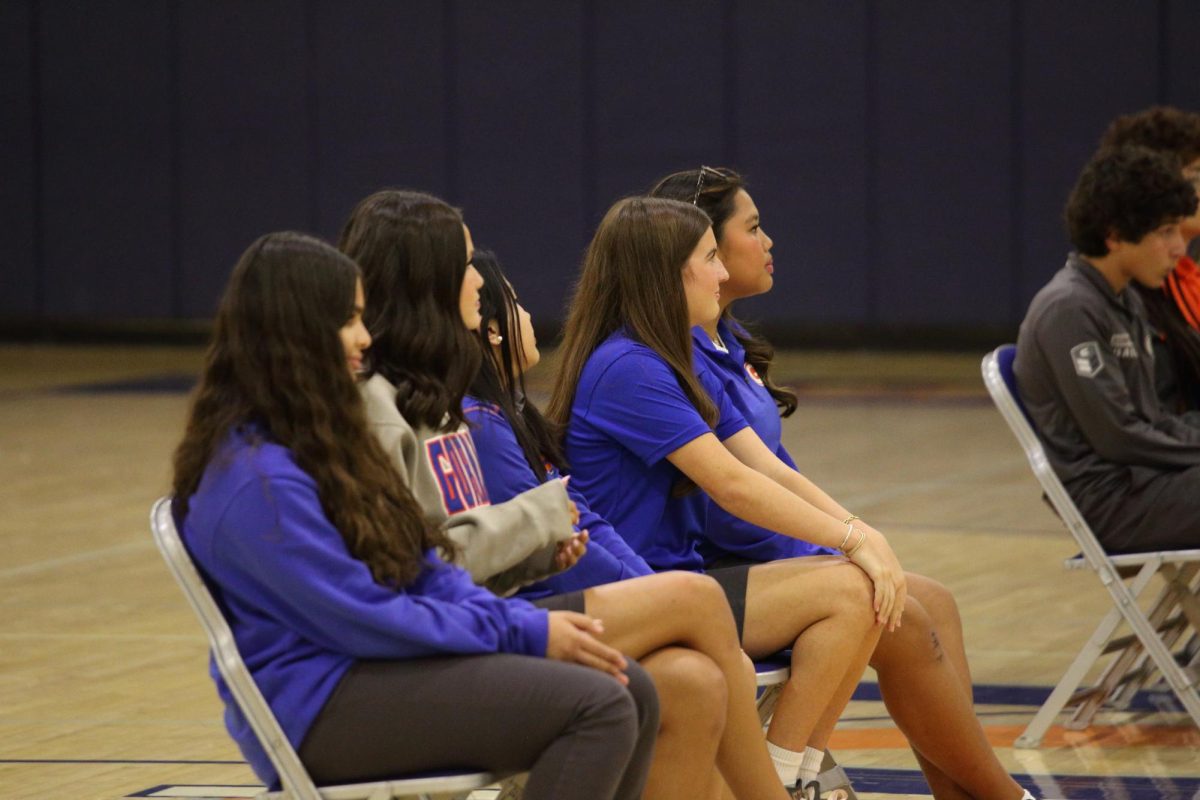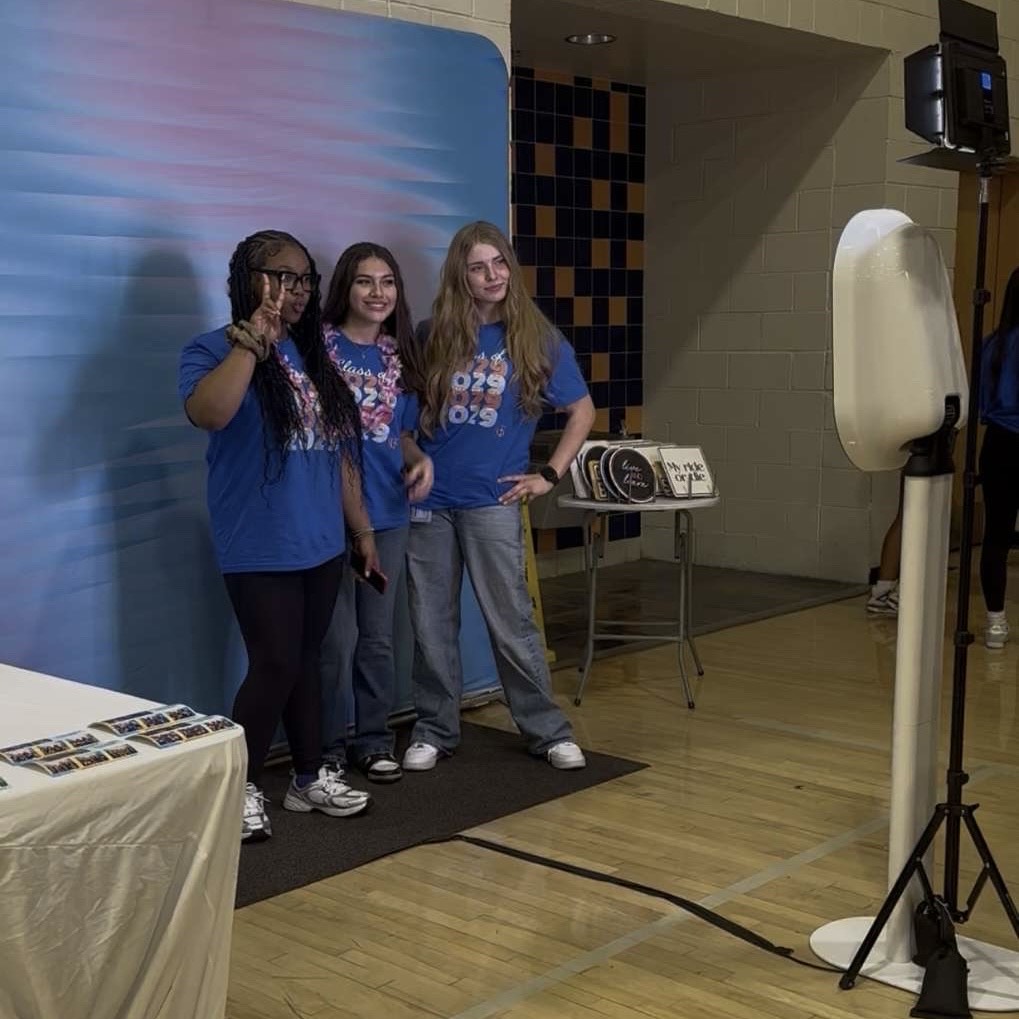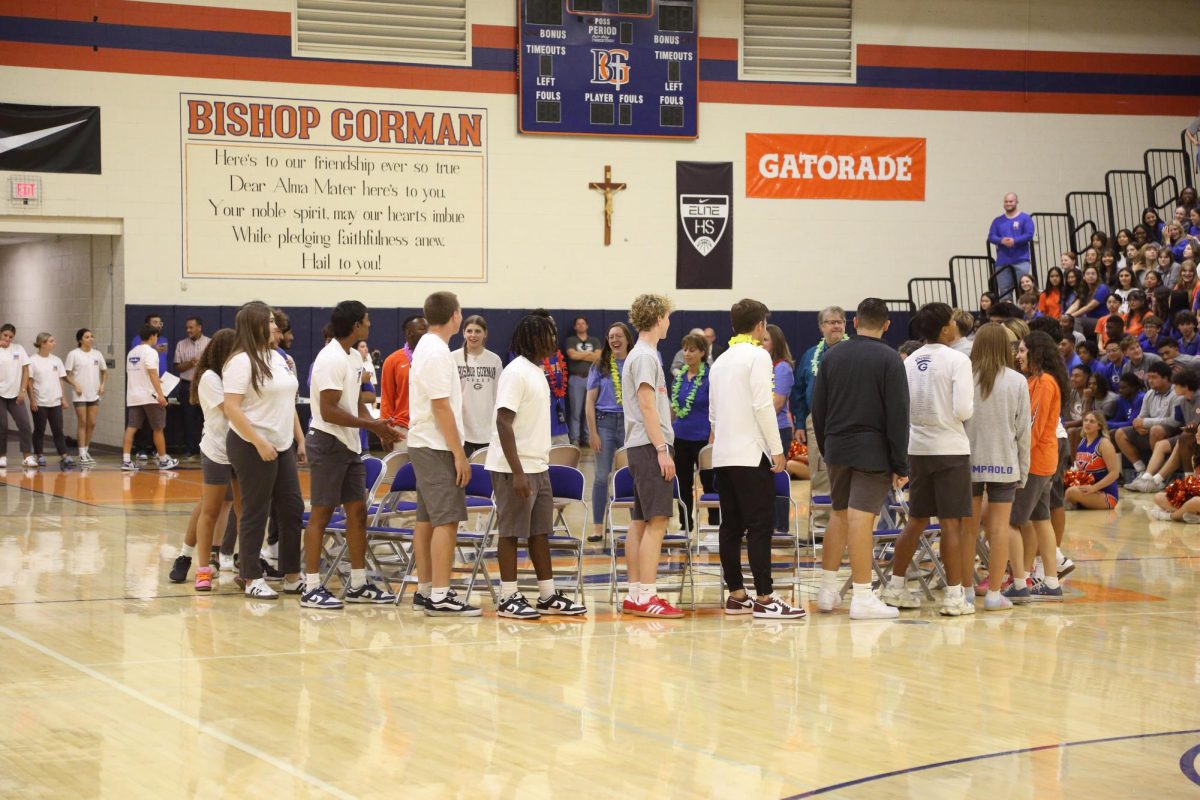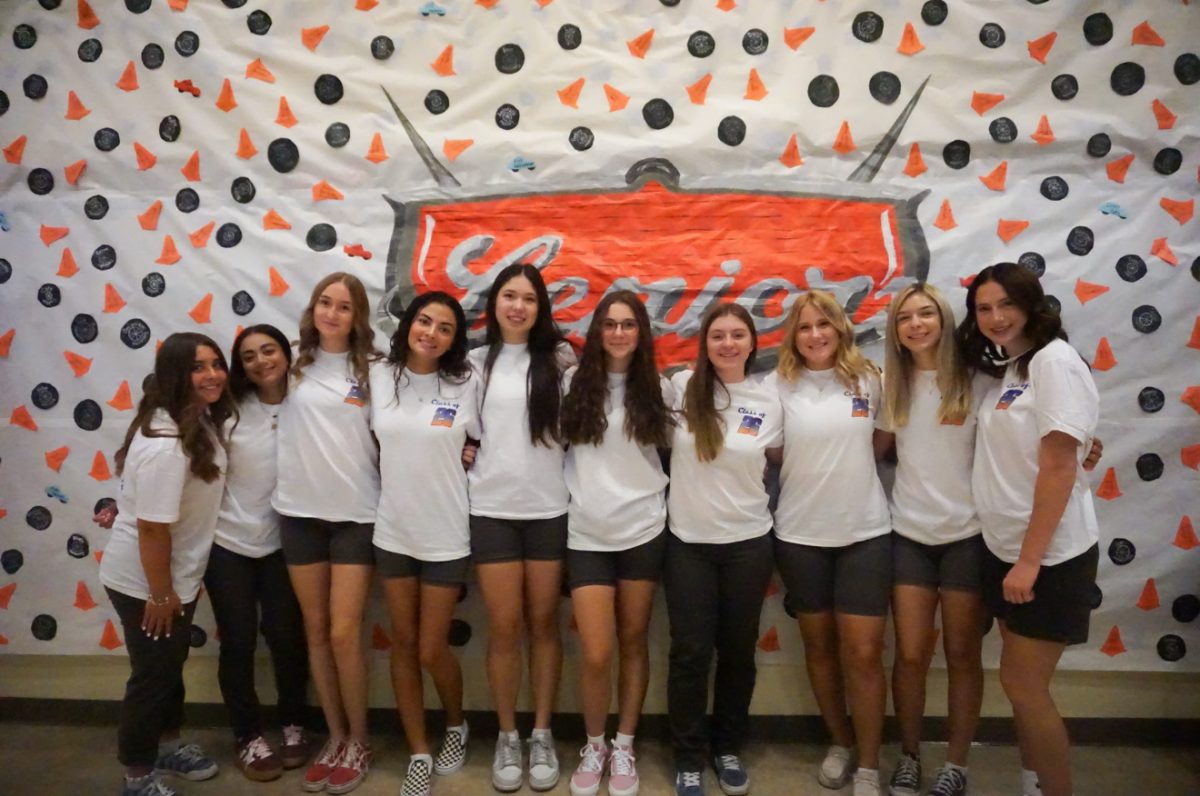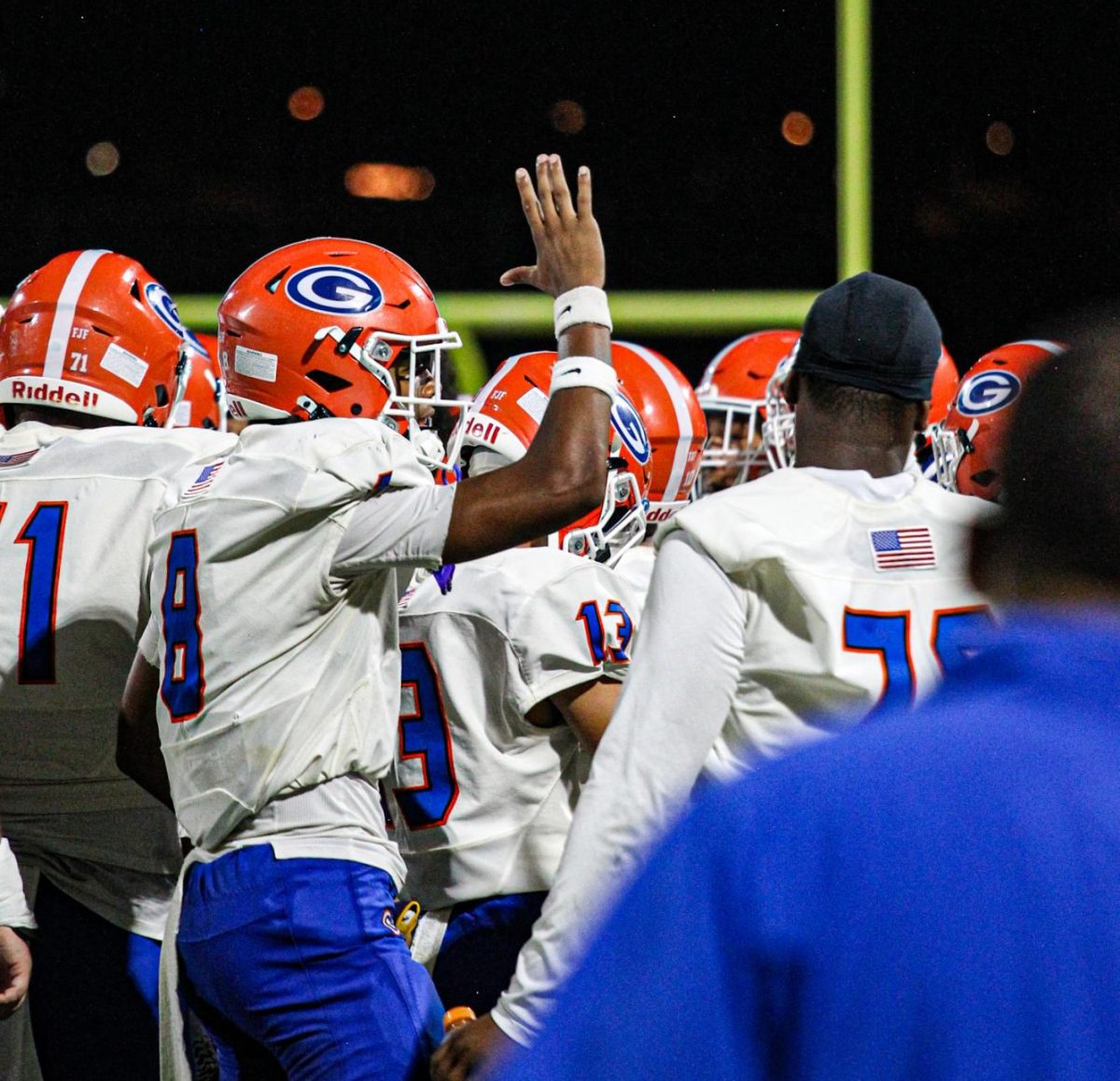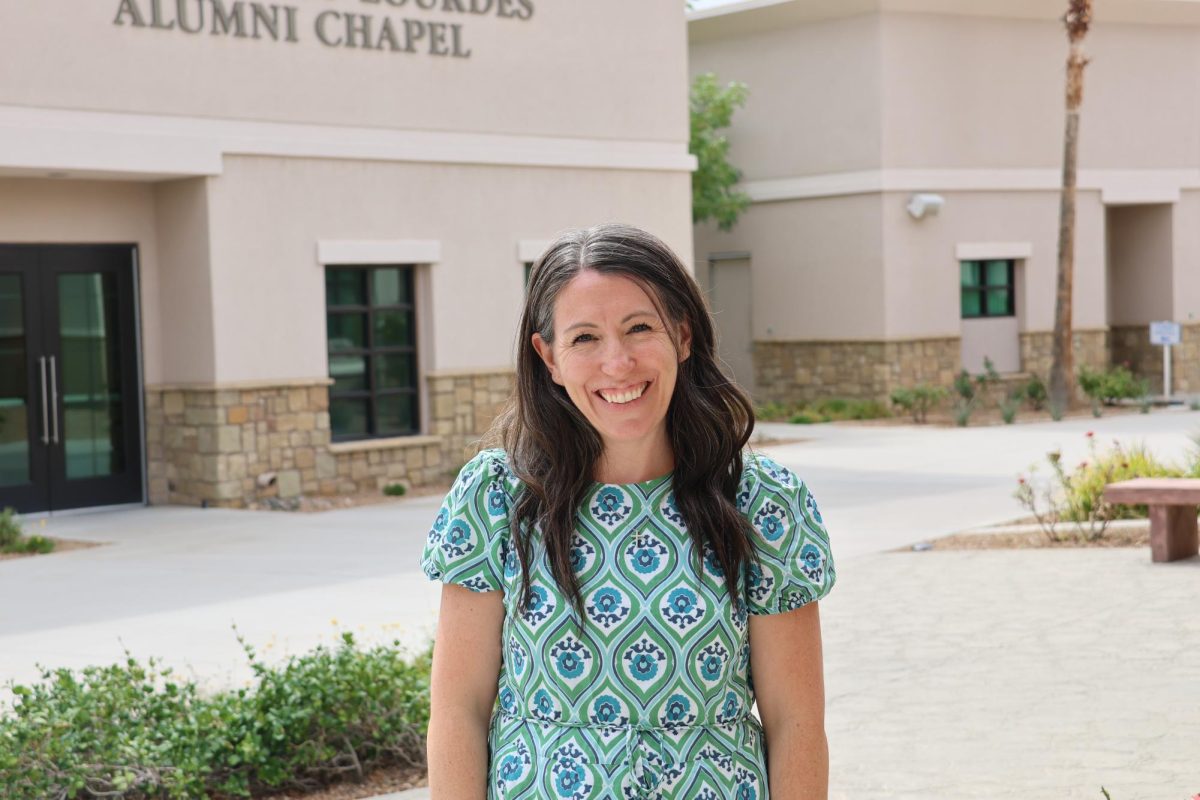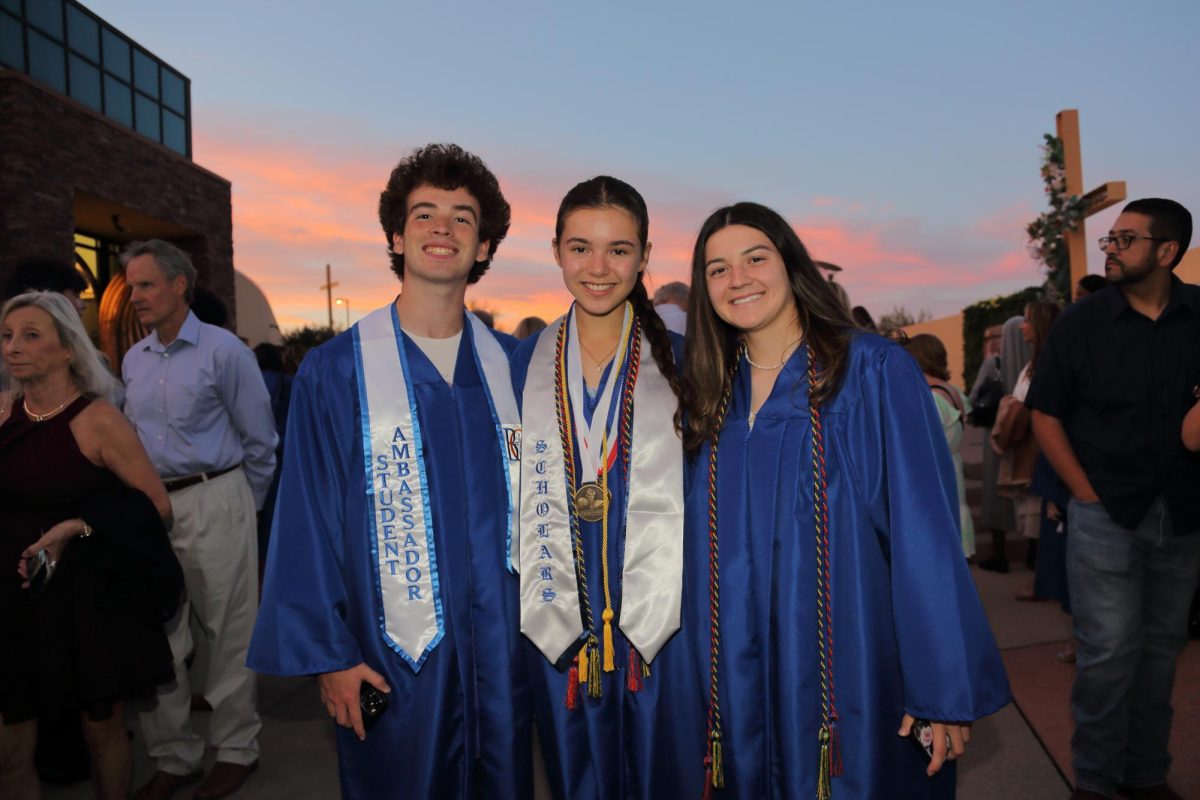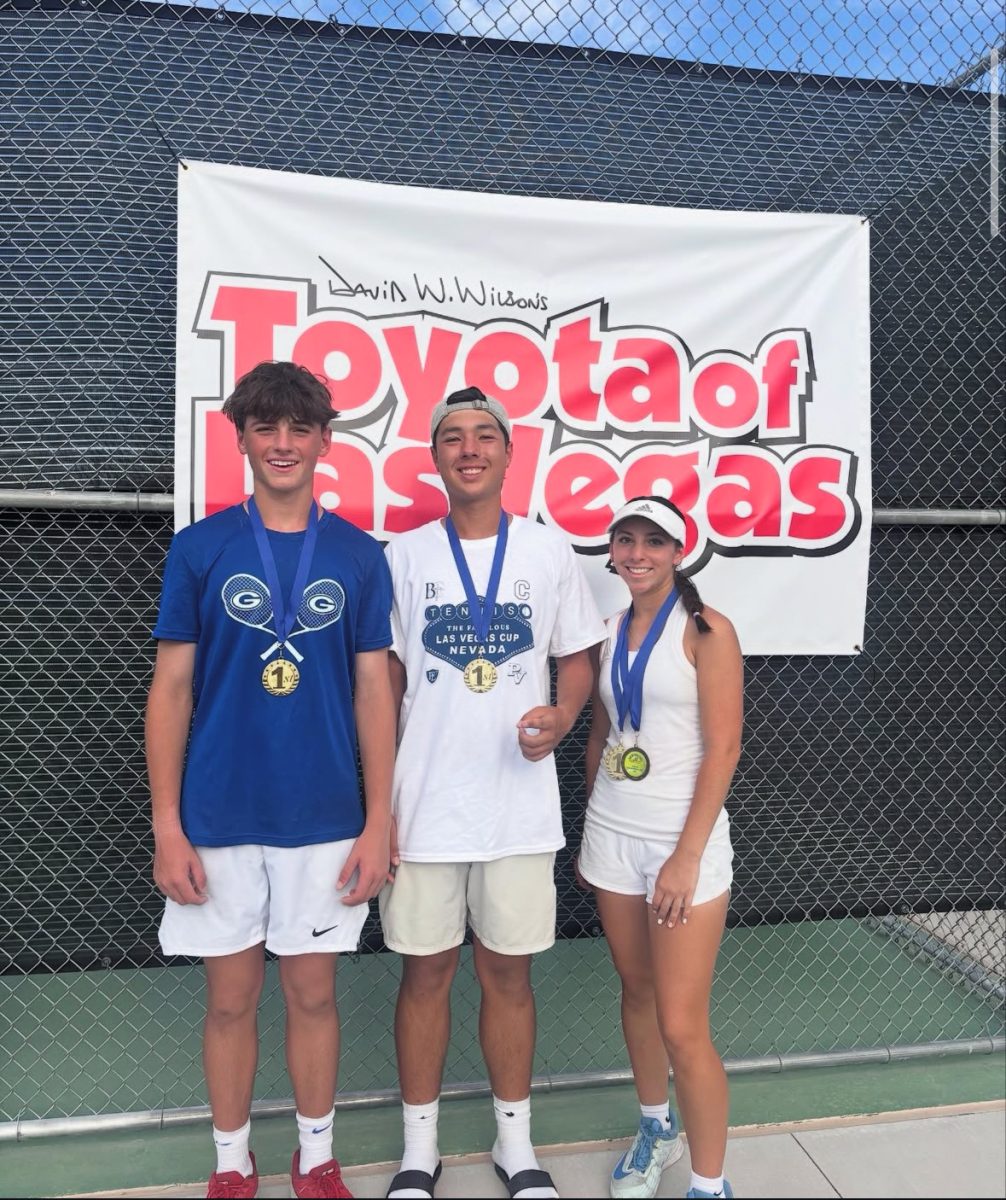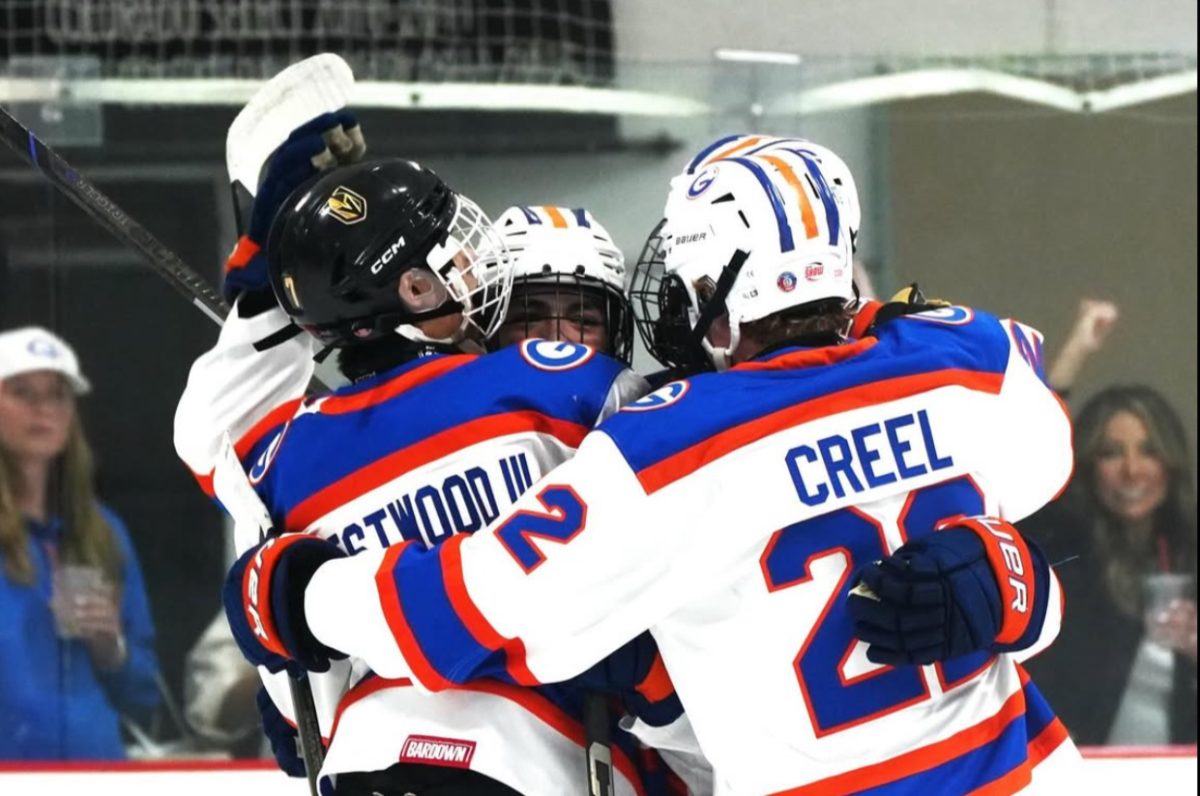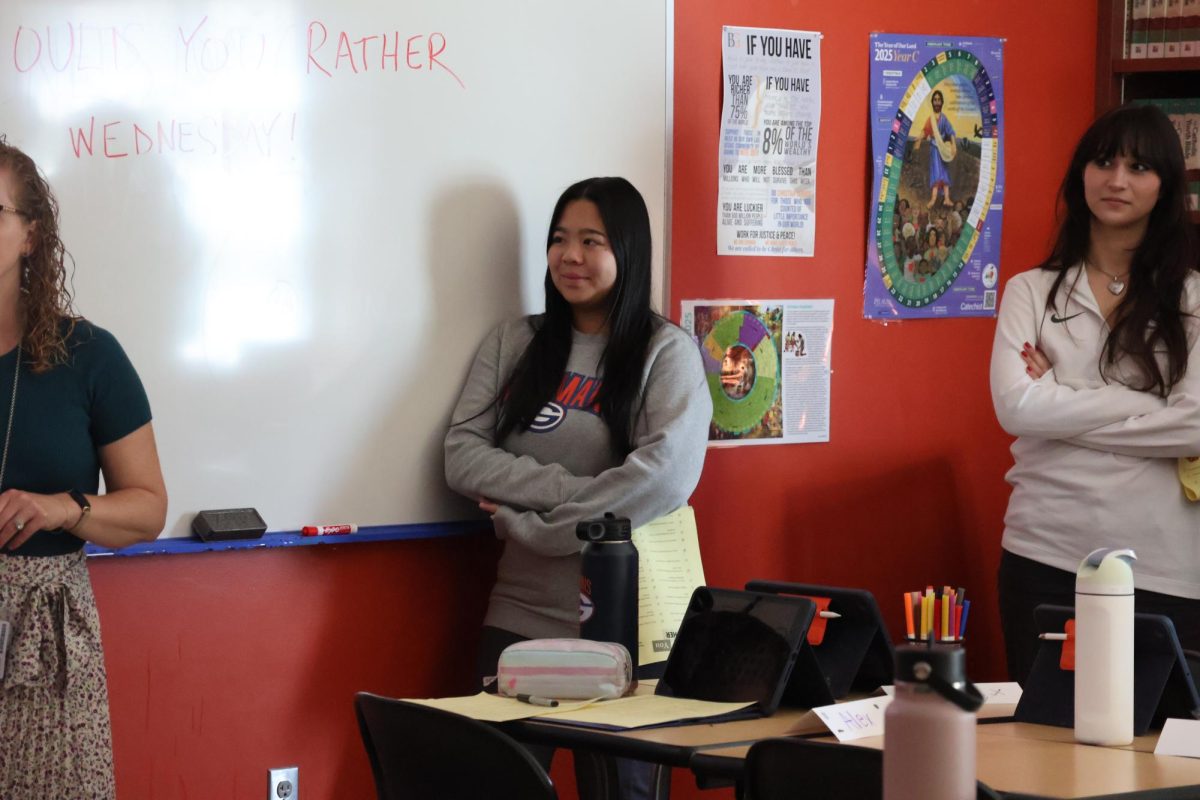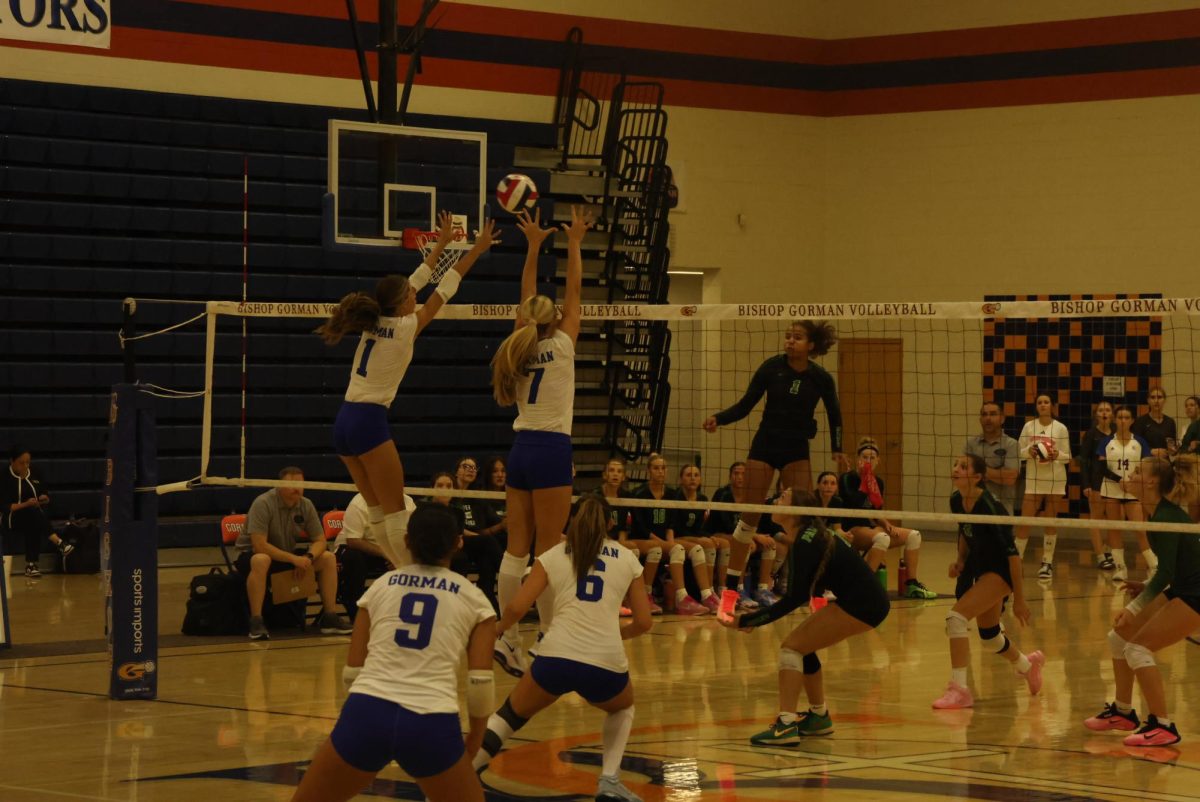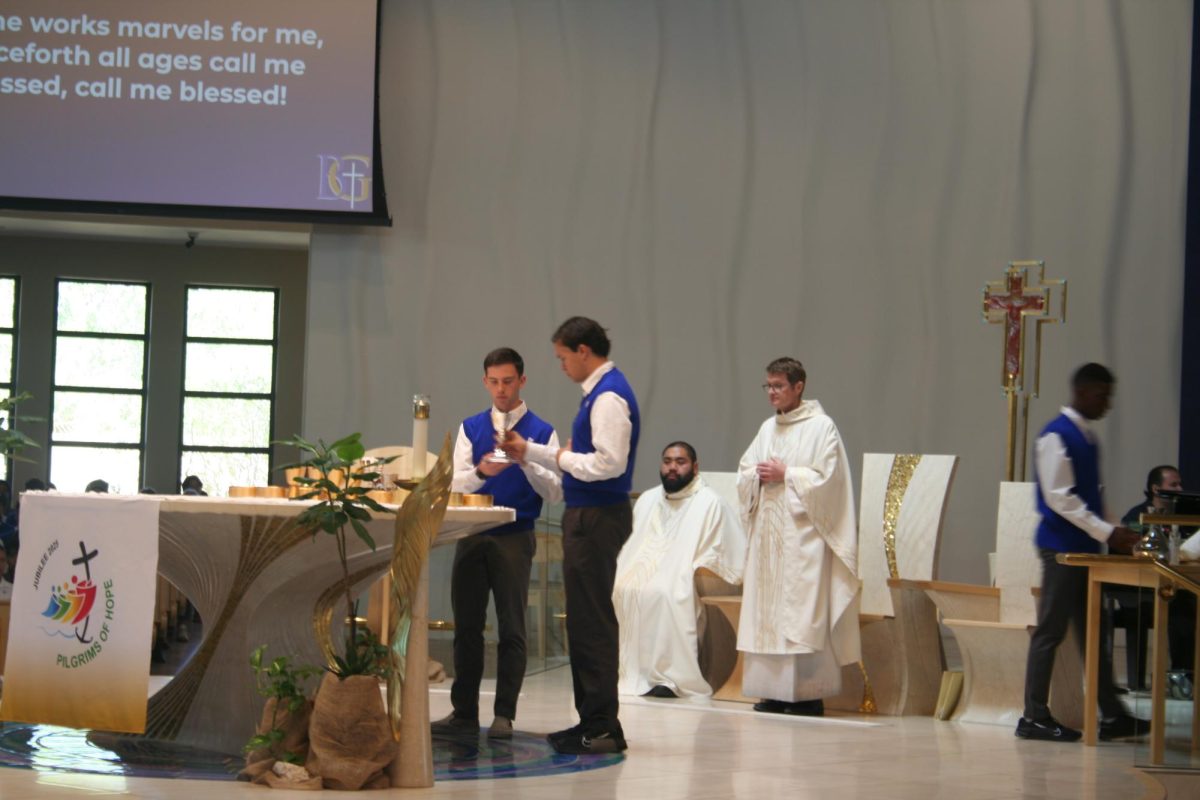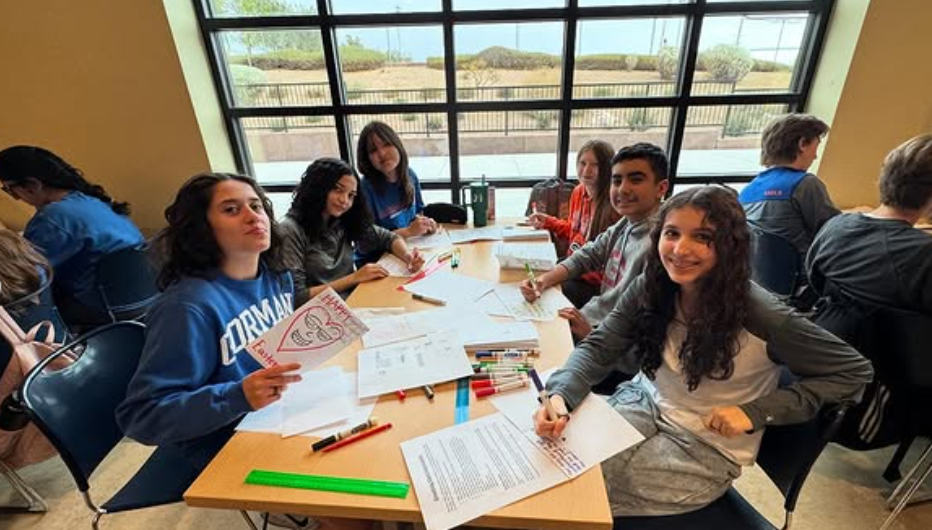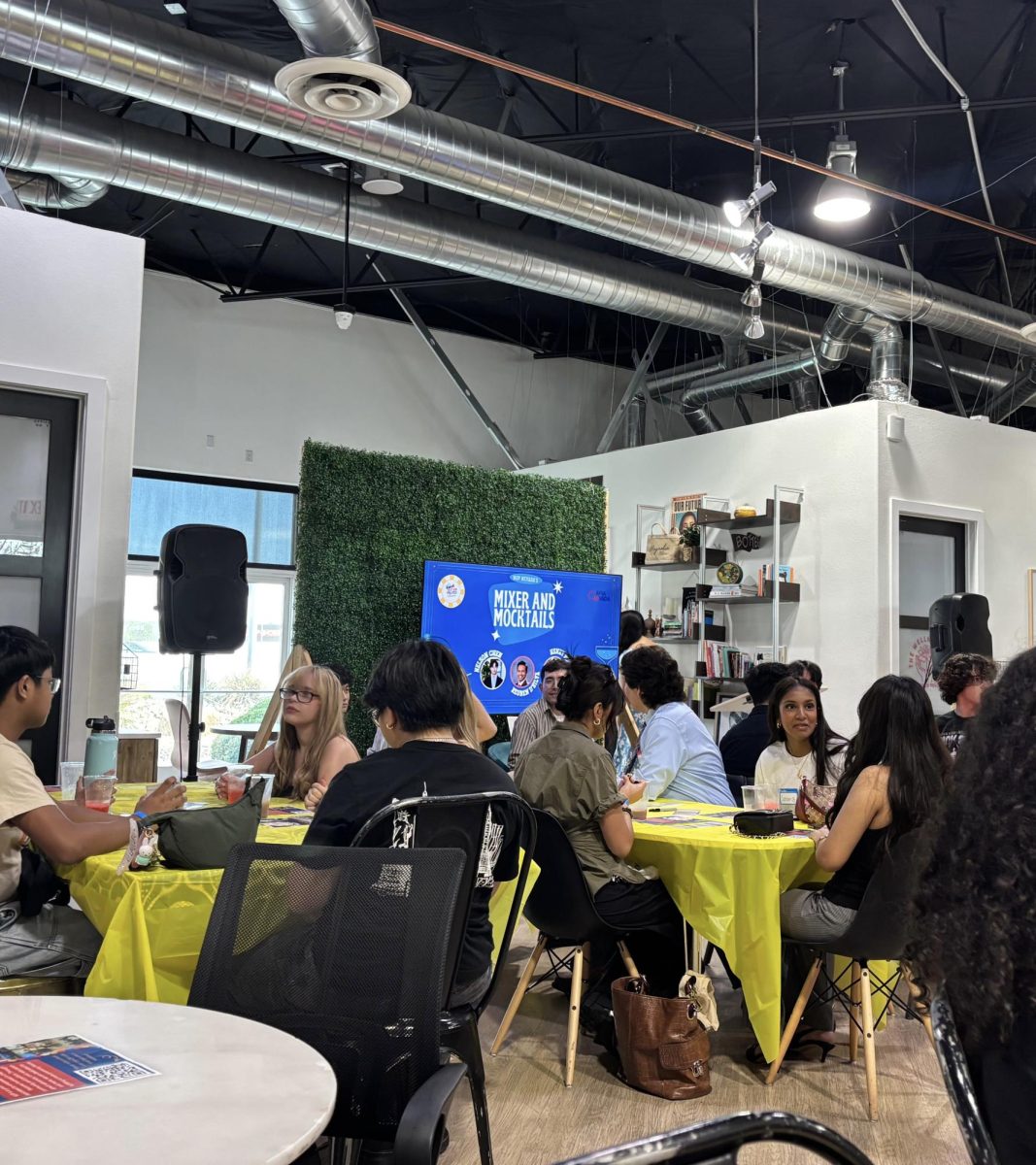Project Mary
October 13, 2022
Mason Hummel walked into the store with a machete in his hand. The young lady behind the counter — not even in her twenties — looked up and smiled at the young man. The faint smell of gas station hot dogs swirled around in the small shop while soft 1980s music rang in the air. “One” by the Beatles echoed throughout the isles.
“Hi there, can I help you?” she asked with a thick Southern accent.
The boy paused for a second. He gazed at her and studied her golden hair which was braided into two tight pigtails. Hummel walked further into the store, gripping the concealed blade tighter with every step he took. He moved slowly but precisely, like a predator stalking its prey. Sweat from his forehead dripped into his eyes; his open hand quivered. He tried to suppress a smile from forming but found it to be an impossible task.
“Excuse me? Are you looking for something?”
Hummel stood behind the counter, inches away from the girl. She stood like a boulder, a confused puppy dog-like expression on her face. In one swift motion, Hummel swung the machete around and, like butter, sliced the girl’s throat open.
A slimy black goo spurted out of her throat and onto Hummel’s face which ran down his cheeks and nose. He smiled.
Hummel left the store covered in black goo. A harsh siren pierced his eardrums as it had done hundreds of times before. He was used to it now, but there was once a time when he would wake up in a cold sweat; that sound at the epicenter of his dreams.
“Simulation Over,” a robotic voice boomed.
Hummel watched the huge city disappear into a blank white void. The machete he once held moments ago faded away into ones and zeros.
He walked out of the room and ran his hand through his greasy, oil-matted hair. He entered a much darker room filled with men and women working diligently behind screens of blue light. None of them paid him any notice. A metal door clanked and bright light — brighter than the light from the white void — spilled into the cave-like computer room.
“Well I’ll be damned,” a much older gentleman started, “How do you do it, Hummel?”
The boy studied the room. He watched the men and women click and clack their keyboards; none of them wavered from their work.
“The girl behind the counter was programmed with only a few lines of code. All she offered was her assistance and nothing more,” Hummel said.
“So we should have given her more lines of dialogue?” the older man asked.
“You’re the scientist, Dr. Kellen. I’m the tester.”
Dr. Kellen rubbed his chin and nodded. With his index finger, he adjusted his glasses and gave Hummel a blank stare.
The boy looked around the room once more. A deafening silence settled upon him. He walked over to one of the scientists who, once again, did not acknowledge him as he clamored his keyboard, writing hundreds of lines of code. He glanced at Dr. Kellen and then back to the scientist. “This version has one problem,” Hummel picked up a pen from the desk and plunged it into the scientist’s neck. “These prototypes lack the simple mistakes humans make. This model has no need for a ‘delete’ button.”
A horrible wrenching sound escaped from the robot’s throat. Hundreds of tiny gears ground against each other as more black goo gushed from its neck. It stopped typing.
The other scientists, which Hummel now knew were just machines, paid him no mind. “Sick,” Hummel thought, “a wild animal has more empathy than these excuses for a hu—”
“You’re a smart boy, Mason,” Dr. Kellen said. “You’re the only person ever to pass all of our tests.”
Hummel stood over the robot with the pen in his hand, the pen in the robot’s neck too, and smiled. He was pretty sure some of the ooze splattered into his mouth but it didn’t matter.
Not to him anyway.
A blank wall stood opposite Hummel. It was a white wall with rough dots that lined every inch of it as if it were some large message written in braille. A gentle hand placed itself on his shoulder. Attached to that hand was Mrs. Nauder, a little old lady who was getting about too old to teach with hair whiter than snow. Her empty eyes sank into the back of her head.
“Are you finished with your test?” she whispered.
“I am,” Hummel said.
“Alright,” she chuckled sweetly, “Always the first to finish. Isn’t that right Mason?”
“My name is Hummel.” His eyes pierced her soul.
Mrs. Nauder stood up and grabbed his papers with shaky, frail hands. “Yes, of course,” she croaked, “I’m sorry, Hummel.” She spun around and shuffled back to her desk at the front of the room.
One hour later everyone stood up. Hummel did not. He observed as the thirty-three students, all excited about getting out of this hellhole for two days, rushed to Mrs. Nauder’s desk. They slammed their papers down and booked it for the exit with plastered smiles on their empty faces.
Hummel stood up once everyone left.
“Goodbye, Hummel. Have a good weekend,” Mrs. Nauder said.
“I will,” he said.
“Oh, Hummel. I almost forgot,” Mrs. Nauder stopped him. “You missed one question.”
Hummel stopped about two inches from the exit. “What?”
“This question right here?” She flipped through a few pieces of paper before pulling out Hummel’s test. The boy leaned in to see what his mistake was. “Number thirty-seven: How are we able to tell an AI apart from a human?”
“I got it right,” Hummel insisted, sweat drops forming at his temples.
“No,” she laughed, “You put ‘B’. The answer is ‘A’.”
His door slammed shut. Hummel stood in the center of his room which was decorated with one twin bed in the corner, a desk in the opposite one with a lamp and pens scattered on top, and a window facing out of his apartment into downtown. He stared out his window for two hours that night.
The orange glow of the setting sun cast a brilliant beam of light upon his face. His muscles relaxed as deep breath escaped his lungs; and yet the question still remained, “How do you tell an AI apart from a human?”
His eye caught the attention of a billboard. On the billboard was a man sitting in a chair and a robot lady standing next to him. In a purple, faded, text, the billboard said “Purchase the New and Improved: True Artificial Intelligence Robots!” A smaller line of text underneath said “So real you can’t tell they’re robots!”
Hummel turned around and dropped his book bag onto his bed. He grabbed his jacket and left. He made his way into the busy downtown area which his apartment overlooked. Around him were hundreds of people, all walking to someplace that they deemed important in their minds. Hummel chuckled under his breath, catching the scene of a family—a father, mother, and daughter — all waiting for a stoplight to turn red so that they could cross the street. An ice cream cone was placed neatly in their hands, their tongues running through the treat like they were starving animals that had been locked in a cage for multiple days on end.
He shook his head and kept walking. After fifteen minutes, Hummel reached Kellen Industries. White walls and a light birchwood floor made up the design of the lobby where a small young lady sat typing something on her computer.
“I need to speak to Dr. Kellen,” Hummel said.
The girl looked at Hummel for a moment and smiled, “You’re Mas—”
“My name is Hummel.”
She paused for a second and smiled even wider, “Yes, of course. Right this way, sir.”
She led him down the hall and through two large metal doors that required a key card to open them.
“Any reason for the surprise visit?” she asked.
“No.”
The walls of the hallway changed from pure white marble into cold steel. The girl turned and led Hummel down a few flights of stairs which took them to Dr. Kellen’s office. She approached the door slowly, giving it three small taps with the knuckle of her pointer finger.
“You have a visitor,” she said.
“Come in,” a disembodied voice said from behind the door.
The girl opened the door and walked in, Hummel right behind her. “Sir, Mas— Sorry. Hummel has come to visit!”
“Hummel!” Dr. Kellen shouted.
He sat behind a desk — which was too small for him — in a tearing leather chair. It had been six months since Hummel had last seen Dr. Kellen.
“Kelly, would you please excuse us for a moment?” the old man asked.
She nodded and ducked behind Hummel, disappearing as the door clicked shut. The two sat in silence for a moment before Kellen finally gave in.
“Alright then. Why’re you here?”
“I need to know something.”
“What do you need to know?”
“How am I able to tell the difference between AI and a human?”
The old man stopped and adjusted his glasses. He ran his frail fingers through his gray hair and sighed. “Well, with the technology that you helped create, it’s impossible now.”
“I don’t believe you,” Hummel hissed.
“I don’t know what to tell you then!” Dr. Kellen laughed. “That’s simply the truth!”
“Let me see one of them.”
“Pardon?”
“I need to see one of the robots. I want to talk to it.”
The robot was created to look like a woman, maybe in her early twenties. She wore a blue and white dress and had brown hair that draped down to her shoulders. Her hands were placed gently in her lap and she smiled when Hummel walked into the room.
“Just don’t hurt her,” Dr. Kellen whispered.
Hummel had laughed at that. “You can’t hurt a robot,” he thought. He sat down on a sofa in front of the robot, staring into its lifeless, metallic eyes.
“Hello,” he said.
“Hi, Mason. I’m Mary,” she replied.
“How do you know my name?”
“I scanned you when you walked in. You have a record here as a volunteer tester for a program under the name: The Turing Test.”
“You’re correct. Do you know what the Turing Test is?”
“I do. The Turing Test, created 207 years ago by Alan Turing, is a test taken by humans who try to discern if the individual they are interacting with is AI or human. You have passed the test every single time when put up against my earlier versions.”
“You know that I have disabled your earlier prototypes?”
“Yes. I do,” she said.
Hummel sat up and coughed. His heart pounded in his chest at what seemed like a million miles per second. His hands dripped with sweat and his stomach started to knot.
“How do you know that you’re a robot?” he asked.
“How do you know you’re human?” she retorted.
He couldn’t help but stutter. Words wanted to escape his mouth but there seemed to be a barrier that blocked anything from leaving. A moment of thinking passed and Hummel finally replied.
“I don’t know.”
“Then that is my answer as well. I have been told all of my existence that I am an AI. You have been told all of yours that you are a human. What is the difference? You’re real and I’m not?”
“The difference is that humans have emotions. They feel things like happiness and sadness. You cannot!”
“Who are you to tell me what I feel? Who’s to say that my programmable version of happiness is not the same as your version? To me, I am just as real as you, Mason.”
Hummel gripped the sofa cushions with his sweaty palms. His heart thumped in his ears. That was the moment he forgot he was talking to a robot. Instead, he was talking to Mary.
“If you and I are truly the same, how do I find out what I am?” Hummel inquired.
To this, Mary did not say anything. Hummel was unsure if she didn’t know how to respond or if she chose not to. There was a twinkle in her eyes that lit Hummel’s heart on fire; it was something that he had not previously seen — something that he had been blind to when first entering the room.
Hummel sat on his bed and stared at his wall. All he could see were her eyes. Her beautiful blue eyes reminded him of the large bodies of water that were once called oceans. For the first time in his life, he could see the life behind someone’s eyes. He could feel her soul radiating onto him, covering him in a warm blanket. For once in his life, he felt something.
That scared him.
During the meeting with Mary, Hummel’s heart pumped faster than ever before. His stomach churned from the nervousness and his palms sweat like a dog on a hot summer day.
Not once in his life could he recall such a feeling. Not the day his dog died. Not the day his brother died. Not even the day his parents died. They were just memories to him; shells of a possible reality that may or may not be the truth. He couldn’t even remember the last time he cried. Maybe when he was born?
Hummel sat at his desk. The time was now deep into the a.m but all he could do was think. Under some books sat the laptop that he had been given in his younger years. He pulled open the screen and logged into his account.
Dr. Kellen’s name was already in the search bar before he knew what he was doing. Clicking through pages and pages of the famous scientist’s work, Hummel read hundreds of articles about the man’s genius discoveries in the field of artificial intelligence. Then the boy found a video that was posted within the past few weeks of a press conference that Dr. Kellen attended. He skimmed through the hour-and-a-half video before stopping at the forty-eight-minute mark.
His eyelids battled to stay open for just a few more minutes. This was when he heard it; a part in the video that he had to replay to make sure he heard it correctly.
“Once an AI can pass the Turing Test, then we move on to the second stage of the plan. We have yet to designate a name for this test which is why we will call it Project Mary for now. This project is when two AIs must interact with one another. If both AI’s are incapable of detecting that they are AI’s then that is when we have truly recreated the human consciousness,” Dr. Kellen said.
Hummel sat up in his seat and paused the video.
“Project Mary,” he stammered, “I couldn’t tell she was a robot, and neither could she.”
He stood up from his table and paced around his dimly lit apartment room. He could still see her eyes. Her beautiful eyes. He could smell her perfume — a powerful aroma that reminded him of vanilla.
The bell rang and, as usual, the kids raced to the door like a pack of hungry wolves that had just spotted an injured deer. Hummel stood up and walked to Mrs. Nauder’s desk.
“Excuse me,” he said.
“Yes, Hummel?”
“I figured out the answer to the question,” he said, stuffing his hands into his pants pocket.
“What do you mean? I already went over the answer with you last Friday?”
“You were wrong too, Mrs. Nauder,” Hummel said, “There is no difference between AI and humans. We are the same.”
Mrs. Nauder’s eyes went wide and the blood drained from her face. Hummel was pretty sure she had a heart attack before he brought the pocket knife down onto her head. Nothing more than a quick yelp escaped the lady’s throat. Her lifeless body lay slumped over her desk. Hummel, on the other hand, had never felt more alive. He let go of the knife, his hand shaking with exhilaration and wiped the sweat from his forehead.
His heart pounded with excitement, he could barely contain a smile let alone a laugh. It was a high-pitched one too, like a hyena.
Hummel stood at the crosswalk, waiting for the light on the other side to turn green. Next to him was a young boy who held his mother’s hand.
“Mommy,” the boy said.
“Yes, dear?”
“Will the pill hurt?”
“No,” she smiled, “All the pill is going to do is help you. I remember back when I was a little girl,” the lady paused, “there was no pill to cure those types of issues. You’re a very lucky boy, Max.”
He stepped foot into the lobby once more. Kelly sat behind the desk, still typing like there was no tomorrow.
“Kelly, I need to see Dr. Kellen,” Hummel said.
“I think he’s busy right now, Hummel. I could try fitting you in some other time—”
“No. Now.”
Kelly was a young girl. Not a stupid one. She could tell when she was in danger. She lifted her hands from the keyboard and grabbed her key card. Doing her best, she faked a smile and handed him the card saying, “I trust you know the way.”
Hummel was unsure of what she would do next. He did not care regardless of what that was. He walked through the metal doors with ease and made his way through the metal hall and down the flights of stairs that led to Dr. Kellen’s private office.
He opened the door and walked inside. Dr. Kellen was waiting with a shotgun.
“You knew I was coming?” Hummel asked.
“I watched the whole conversation last night. Of course, I knew,” he said.
“So it is true then? Is that why I don’t remember what happened to my parents? Is that why I don’t feel anything? Hell, is that why I can’t remember a single doctor’s appointment? Because I’ve never been! Because I’m an AI.”
The old man gripped the gun tighter and placed his finger firmly on the trigger.
“TELL ME!” Hummel shouted.
A loud bang echoed around Hummel’s head. For a moment things went dark; a high-pitched ringing was all he could hear. When he opened his eyes, Dr. Kellen was sitting on the opposite side of the room clutching his head in his hands, the shotgun on the ground.
The boy tried moving his legs but found it to be impossible. Concerned that something was wrong, he looked down. His legs were still, intact, hell, they probably could’ve run a marathon; his body, however, was not. His chest was torn open. Blood spurted out of him like a sprinkler, staining the white walls of the room.
Dropping his head against the wall, Hummel closed his eyes and wheezed an airy laugh. He felt his heart pump for the last time.
“So that’s what I am.”
Bright lights shined into the old man’s eyes, flickering with every step he took. Clapping and cheering roared through the audience like a tsunami once he took center stage. The man addressed himself as Dr. Kellen, the creator, and founder of True Artificial Intelligence and Kellen Industries.
“Hello everyone. As you know, I and my team have been hard at work these past twenty years,” he said with a smile, motioning to the left of the stage where three men and women stood with smiles engraved on their faces. “When we started Kellen Industries, we started with the goal to change the world. Well, ladies and gentlemen, with the completion of Project Mary, today I can proudly say that we have accomplished that goal!”
More clapping swept across the audience of more than a thousand people.
“The AIs that we’ve created at Kellen Industries have successfully passed the Mason Test and with that, we are the first people in the world to have successfully recreated the human consciousness.”


